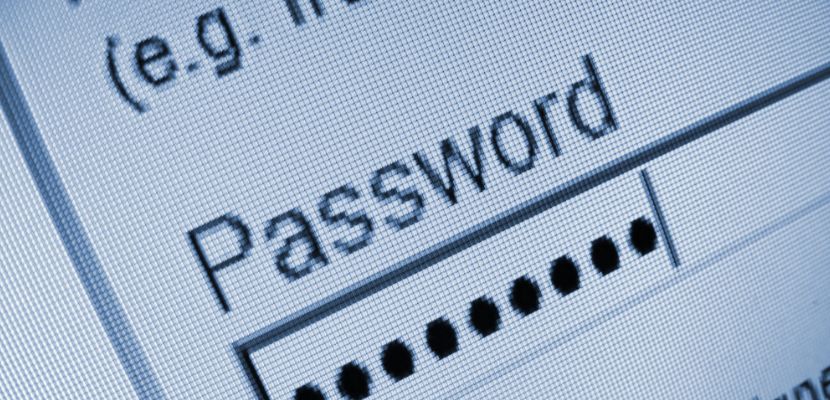A passphrase is a sequence of words, phrases, or characters used as a security measure to protect accounts, devices, or encrypted data.

What Is a Passphrase?
A passphrase is a string of words, phrases, or characters used as a security credential to protect access to accounts, systems, or encrypted data. Unlike standard passwords, which are often short and may include a mix of letters, numbers, and symbols, passphrases are typically longer, aiming to balance memorability with security.
Composed of common words or meaningful phrases, a well-crafted passphrase offers enhanced protection by increasing the total length and complexity, making it more resilient to brute-force attacks and easier for users to recall. Passphrases can often incorporate spaces and punctuation, adding another layer of entropy, which is crucial for resisting unauthorized access attempts.
By employing a series of words or phrases that are both unique and memorable, passphrases provide an effective, user-friendly approach to securing information and access without relying solely on complex character combinations.
Types of Passphrases
There are several types of passphrases, each with unique characteristics and strengths. Here are some common types:
- Random word passphrase. This type consists of a series of randomly selected words that aren’t directly related to one another. The randomness increases security by making the passphrase difficult to guess. Users can generate these by picking words at random from a dictionary or using online password generators. Random word passphrases are highly effective in resisting brute-force attacks due to the unpredictability of the words.
- Mnemonic phrase passphrase. This passphrase type uses a memorable phrase or sentence, often structured around a pattern or mnemonic device, making it easier for users to recall. For example, a passphrase might be derived from the first letter of each word in a favorite quote or line from a song. Mnemonic passphrases strike a balance between security and ease of recall, though their predictability could be a potential risk if based on widely known phrases.
- Concatenated words passphrase. This approach joins a set of unrelated words together, often without spaces, to form a single string. The result is a long, unique passphrase that’s difficult to guess but still easy to remember. For added security, users might substitute some characters with symbols or numbers, which increases the complexity without sacrificing memorability.
- Sentence-based passphrase. This type uses a coherent sentence, like "The mountains are beautiful in springtime." Sentence-based passphrases are easier to remember due to their natural flow and can incorporate punctuation to increase complexity. While these can be effective, users should avoid sentences from well-known books or movies, as those are more easily guessable by cybercriminals.
- Hybrid passphrase. A hybrid passphrase combines words, symbols, numbers, and possibly capitalization patterns, creating a unique string that blends aspects of traditional passwords with passphrases. For instance, a hybrid passphrase might look like "Sunlight3!onRivers&", mixing words and special characters. This approach maximizes security by increasing the variability of the passphrase components, making it challenging to guess while retaining some level of memorability.
What Is an Example of a Passphrase
An example of a passphrase is:
"PurpleSunrise!Dancing@OceanWaves2024"
This passphrase combines random, memorable words with numbers and symbols, creating a long and complex string that is challenging to guess but still easy for the user to remember. The use of mixed characters adds an extra layer of security while the words create a mental image that can help with recall.
Passphrase vs. Password
A passphrase differs from a password primarily in length and complexity. While passwords are generally short combinations of letters, numbers, and symbols, passphrases consist of longer sequences of words, phrases, or sentences that are often easier to remember. Passphrases provide enhanced security because their extended length makes them harder to crack through brute-force attacks.
Additionally, passphrases are usually more user-friendly, as they leverage natural language, which users can recall more easily than a short, arbitrary mix of characters. However, traditional passwords are still widely used in environments where quick, simple entry is prioritized over security, though they tend to be more vulnerable to common attack methods like dictionary attacks.
What Are Passphrases Used For?
A passphrase is used as a secure authentication tool to protect access to various digital resources, including accounts, devices, systems, and encrypted data. Its primary function is to serve as a robust security measure, often replacing or supplementing traditional passwords to prevent unauthorized access.
Passphrases are especially useful in environments where higher security is required, such as encrypted files, password managers, and multi-factor authentication setups, due to their extended length and complexity. By being more challenging to guess or crack, passphrases help safeguard sensitive information and provide an additional layer of security for users’ digital identities and data.
How to Choose a Good Passphrase?

Choosing a good passphrase involves creating a phrase that is long, unique, memorable, and resistant to guessing or brute-force attacks. Start by selecting a series of unrelated words or a sentence that is meaningful to you but not easily associated with your personal information or publicly known details. Aim for at least four or more words to enhance security, and consider adding special characters, numbers, or capitalization for extra complexity. Avoid common phrases, song lyrics, or famous quotes, as these are more vulnerable to dictionary attacks.
For example, instead of a common phrase like "ilovemydog," a stronger passphrase might be "GiraffeJazz!Rain23Wonders," which combines distinct, memorable words with a mix of symbols and numbers. A good passphrase should strike a balance between security and ease of recall, allowing you to remember it without writing it down, which further protects it from unauthorized access.
How to Create a Passphrase
To create a secure passphrase, follow these steps:
- Choose unrelated words. Start by selecting at least four random, unrelated words. Using a mix of nouns, verbs, or adjectives will make the passphrase more complex and harder to guess. For example, words like "Starlight," "River," "Bicycle," and "Orchestra" provide a solid foundation.
- Add special characters and numbers. Introduce numbers or symbols to increase security further. For instance, adding "42" or special characters like "!" and "&" can make the passphrase less predictable, such as "Starlight42!River&Bicycle."
- Use capitalization strategically. Random capitalization adds complexity without making the passphrase difficult to remember. You might capitalize the first letter of each word or mix it up within the words, like "starlight42!RIVER&bicycle."
- Create a mental image or story. To make the passphrase more memorable, imagine a scenario or story involving the words, like a river flowing under starlight with a bicycle leaning against an orchestra’s stage.
- Avoid common phrases and personal information. Refrain from using known phrases, famous quotes, or any details directly linked to your personal life, such as names, birthdays, or favorite songs, as these can be easily guessed.
Benefits of Using a Passphrase
Using a passphrase offers several key benefits that enhance both security and usability:
- Increased security. Passphrases are typically longer than passwords, making them much harder to crack through brute-force or dictionary attacks. The added length and complexity significantly increase the possible combinations, offering a more robust defense against unauthorized access.
- Improved memorability. Passphrases are composed of words or phrases rather than random characters, which makes them easier to remember. A series of meaningful words or a sentence is more likely to stick in a user’s memory than a complex password with arbitrary symbols and numbers.
- Reduced need for frequent changes. Because passphrases are inherently more secure, they often do not need to be changed as frequently as shorter, weaker passwords. This can lead to a more stable and user-friendly security environment, reducing the frustration of constantly updating credentials.
- Versatility across platforms. Passphrases can be used across a wide range of platforms and devices, from user accounts and encrypted files to multi-factor authentication and hardware access. This adaptability makes them a practical choice for those managing multiple secure logins.
- Resilience against common attacks. Passphrases are better equipped to withstand attacks that exploit common, easily guessed passwords. Unlike simple passwords that might be vulnerable to common attacks, a passphrase with unrelated words or added complexity resists such attacks effectively.
- User empowerment in security. Passphrases encourage users to engage with their security actively, allowing them to create something memorable yet secure without having to rely on password managers for complex, hard-to-remember combinations. This user-friendly approach fosters better security habits and overall digital hygiene.
Disadvantages of Using a Passphrase
Using a passphrase offers several key benefits that enhance both security and usability:
- Dependency on strong habits. Passphrase security depends on users creating unique phrases for different accounts and updating them if compromised. Without good habits in place, even a passphrase can be vulnerable, as using the same one across multiple sites increases the risk of data breaches affecting multiple accounts.
- Typing complexity. Longer passphrases take more time to type, especially if they include mixed capitalization, symbols, or numbers. This can be inconvenient, particularly on mobile devices or in situations where quick access is required.
- Potential for weak choices. Users may choose passphrases that are too simple or based on common phrases, making them easier to guess or susceptible to dictionary attacks. Passphrases that follow predictable patterns, such as "MyDogIsTheBest," are less secure than truly random sequences.
- Difficulty remembering complex phrases. While passphrases are generally easier to remember than complex passwords, they can still be challenging if they contain random or unrelated words, especially if users don’t create a mental story to recall them. This can lead to forgotten passphrases or the need to write them down, which may compromise security.
- Incompatibility with some systems. Not all systems support passphrases, particularly those that limit the length of passwords or do not allow spaces. Users may need to adapt to shorter passwords in certain cases, reducing the security benefits of a longer passphrase.
- Overconfidence in security. Users might develop a false sense of security, believing that all passphrases are inherently safe. However, if a passphrase is too simple or follows predictable language patterns, it may still be vulnerable to certain types of attacks, such as those that exploit common words and phrases.